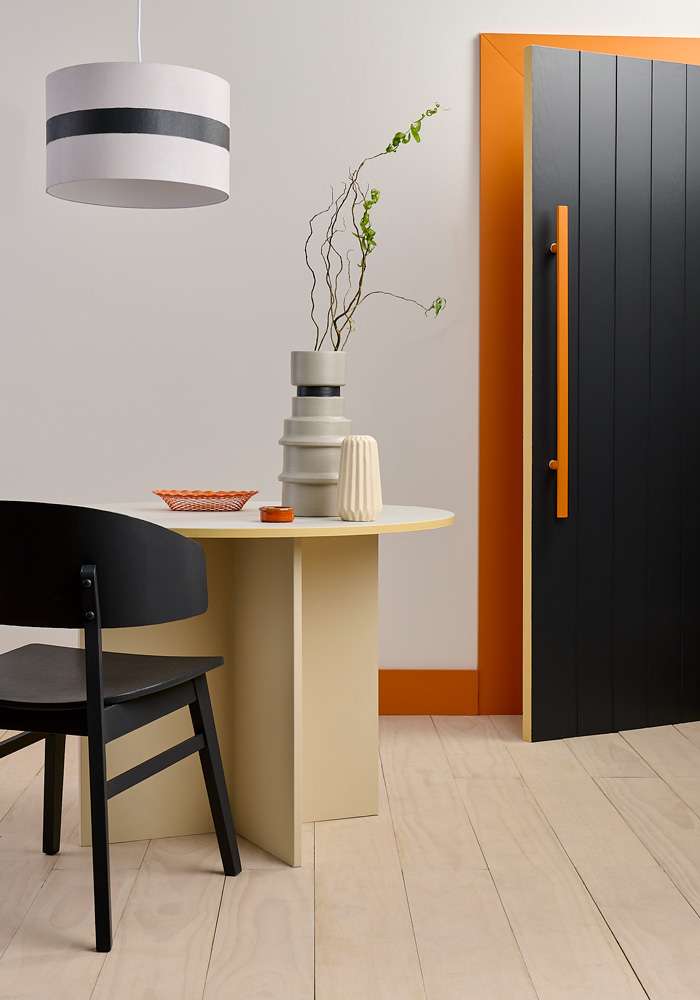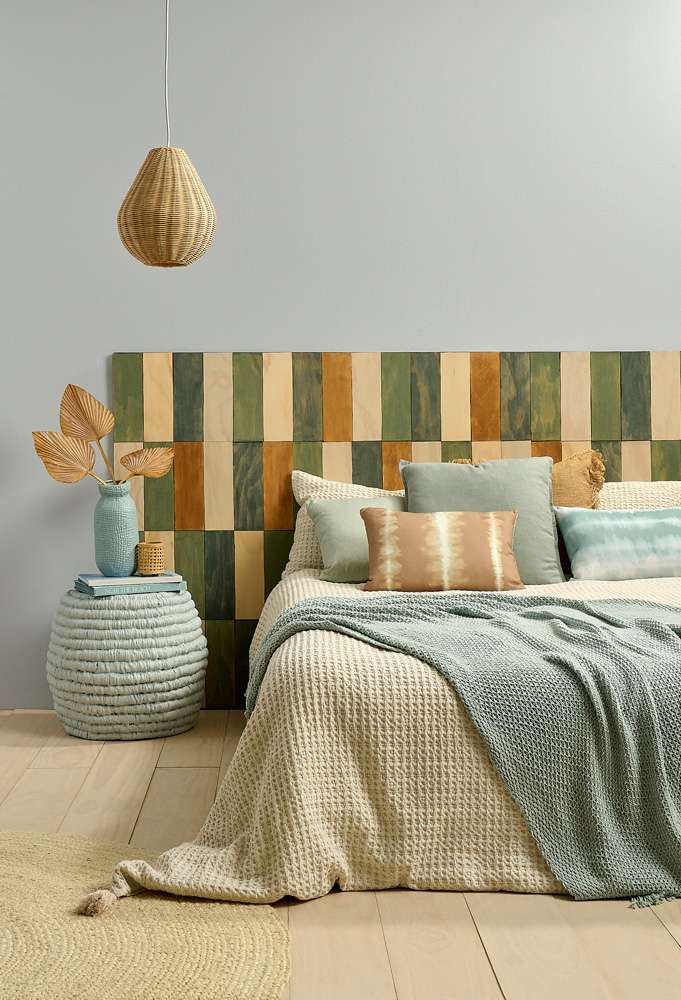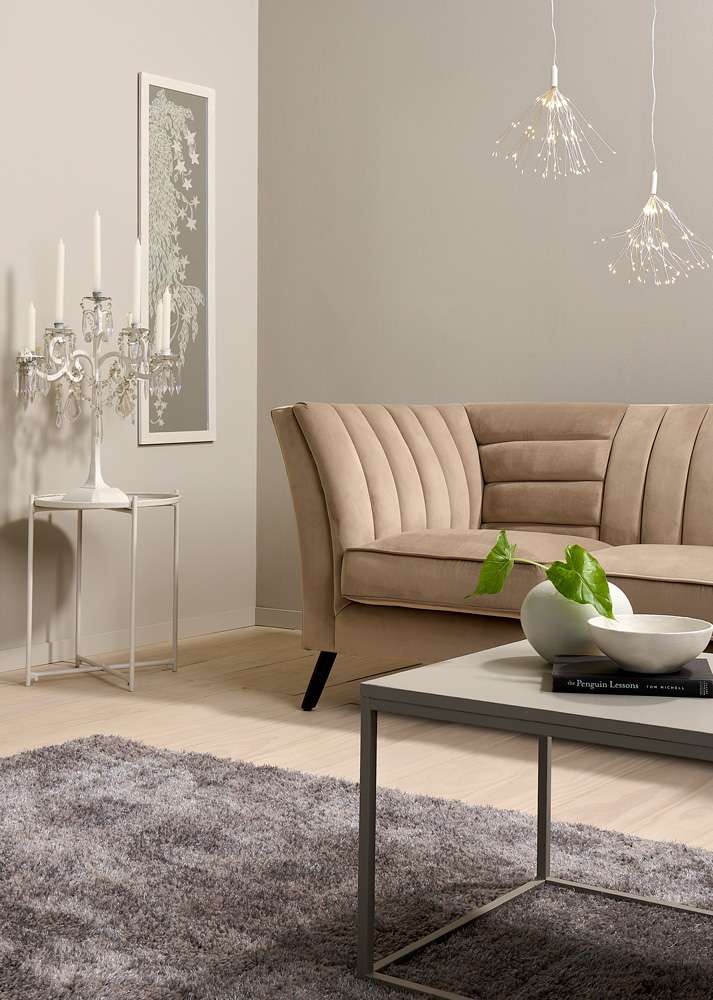Sustainability is on everybody’s mind. We’re all taking a closer look at how much waste we’re responsible for in all aspects of our lives and how we reuse materials or dispose of them mindfully.
We can see the influence of this shift toward better sustainability in design trends, as we embrace a close connection to nature, using products like Resene Waterborne Woodsman and Resene Colorwood stains to showcase a timber’s natural beauty, and in earthy colour palettes that embrace earthy greens like Resene Iko Iko and terracotta like Resene Cinnamon.
But it’s also making us all think about the redecorating products and services we use, to make sure the waste and clean-up is as environmentally-friendly as possible.
Resene has a long history of considering the environmental impact of its products and how they’re used. From joining the Eco Choice certification programme in 1996 to launching the Resene PaintWise paint recycling programme and the ongoing development of low-VOC and plant-based products, Resene is committed to making it simple for customers to make good choices around sustainability without sacrificing the quality of their finished project.
Start your property search
Here, some of Resene’s colour and technical experts give their best tips on how to improve the sustainability credentials of your renovation or redecorating project - particularly by avoiding waste-making mistakes.

Look for ways to repeat colours in your house, even in small amounts. This creates colour connections as well as makes use of leftover paint. This trim and a door handle painted in Resene Clockwork Orange provides a dramatic contrast against walls painted in Resene Eighth Truffle, door in Resene Ebony Clay, edge in Resene Putty, floor in Resene Colorwood Breathe Easy, table base in Resene Blank Canvas with top in Resene Truffle and edge in Resene Putty, chair in Resene Ebony Clay, lightshade in Resene Urbane with stripe in Resene Ebony Clay, tall vase in Resene Triple Truffle with stripe in Resene Ebony Clay and small vase in Resene Blank Canvas. Project by Kate Alexander, image by Bryce Carleton.
● To avoid waste and extra clean-up, put the roller sleeve back in the plastic bag it came in. Make sure it’s airtight. This will keep the paint fresh while you take a break or overnight.
● The Resene PaintWise paint recycling programme means you can return your Resene paint tins and buckets to designated Resene ColorShops free of charge. Leftover good paint is recycled and donated to community projects as a first coat or to cover graffiti.
● Always get accurate measurements for your project to avoid waste. Resene has a great paint calculator on our website www.resene.com/paintcalculator that helps you estimate the right quantities of paint for each area, so you don’t buy too much. The staff instore at your local Resene ColorShop can also help you work out how much paint or wallpaper you need.
● Do your research and ask experts for their advice. By going into a project as clued-in as possible and double checking you have everything you need before you start, you can avoid mistakes and waste.
● Look for Resene products that have the environmental tick on the lids (labelled Resene Eco Choice). You’ll find it on most Resene waterborne paints. Resene Eco Choice approved paints have been independently verified as having no added volatile organic compounds (VOC). There is also an extensive range of low VOC products and low odour products too.

Get creative with leftover building materials to add unexpected touches to your rooms. Panelled headboard stained in Resene Colorwood Breathe Easy, Resene Colorwood Rising Tide, Resene Colorwood Shore Thing, Resene Colorwood in Natural and Resene Colorwood Whitewash, wall painted in Resene Loblolly, floor in Resene Colorwood Breathe Easy, rattan light in Resene Blanc, side table in Resene Tiara, tall vase in Resene Destiny. Bedlinen and brown palm leaves from Adairs, rectangle cushions from Freedom, large square cushion from H&M. Project by Vanessa Nouwens, image by Bryce Carleton.
● Look for ways to reimagine or re-purpose items you already own or pick up second-hand. I like to think there is a home out there for anything that is well made. You can breathe a second or third life into most things with a little imagination, sandpaper and some Resene paint, stain or wallpaper.
● There are products that help you use your paint more efficiently and effectively in different conditions so you don’t waste paint doing extra coats to cover imperfections. One example is Resene Hot Weather Additive which is a life-saver for painting in hot temperatures, because it slows drying time so your water-based paint flows nicely without dragging. It’s particularly helpful on darker colours and reduces roller marks.
● If you have a tricky or unusual surface to paint or are working with tricky climate conditions, talk to Resene ColorShop staff as there is probably a technical product available to help solve your problem that you might not know about that can help you avoid wasteful mistakes.
● If you’re outsourcing your project to a painting contractor and want to be assured they’re considering the environmental impacts, try the Resene Eco.Decorator programme. This is a nationwide network of environmentally responsible and quality focused contractors whose sustainability practices have been specifically assessed for the programme. Find one at www.resene.com/ecodecorator.
● Use Resene waterborne paint, sealers and stain products such as Resene Waterborne Woodsman, Resene Lustacryl semi-gloss, Resene Enamacryl and Resene SpaceCote Low Sheen. They are hard wearing and will last well. As they’re water-based they can be easily cleaned up with water.
● Wash and rinse your brushes in a bucket to avoid wasting running water. Leave the bucket until the next morning before emptying it. The paint will settle on the bottom so it can be removed separately from the water. You can then re-use that water. Dispose of any dirty water down your inside drains, rather than outdoor drains which flow to the sea.

Seek out advice from the experts at Resene ColorShops as they can help make sure you use the right products and finishes to get the best result for your room. Wall and skirting painted in Resene Truffle, floor in Resene Colorwood Breathe Easy, coffee table and side table painted in Resene Triple Truffle, candelabra and bowl in Resene Quarter Truffle, vase in Resene Half Truffle and light pendant in Resene Triple Truffle and Resene Double Truffle sponge effect. Couch from Interior Warehouse, rug from Briscoes. Project by Megan Harrison-Turner, image by Bryce Carleton.
● Take your time and prep your surface well. Everyone knows preparation is key but it's always the part people want to skip. The better the preparation, the easier the painting will be and the longer the paint job will last.
● If you’re painting your roof, consider doing it before painting the house exterior to reduce the risk of damage to your new paintwork.
● Use Resene’s free Ask a Paint Expert service online, www.resene.com/paintexpert, and talk to an expert at your local Resene ColorShop to find the right preparation products and paint for your house. This may vary based on the type of substrate material (such as concrete, brick or wood), and the condition it’s in.
● A yearly washdown with Resene Paint Prep and Housewash or Resene Bio-Cleaner will help your paintwork last longer.
● Use leftover paint to connect the colours in different areas of your house. If you’ve used a shade like Resene Stonewall on your living room walls, think about using up any leftovers on kitchen cabinet handles or picture frames and accessories. You make good use of your paint and keep your interior looking cohesive.
● If you want to safely dispose of unwanted paint at home, you can get a disposal kit at your local Resene ColorShop. Simply mix in the disposal kit material and allow it to dry, then the paint can be safely disposed of with normal rubbish. Where you can, it’s best to recycle the paint while it is still in good condition, as this gives it the best chance it can be reused.
Did you know?
Resene has a growing selection of plant-based products.
Over the last few years, Resene chemists have developed new hybrid waterborne alkyds, which meet Eco Choice standards. These are replacing solventborne formulas which do not.
Resene chemist Greg Percival explains: "Alkyd polymers based on plant oils such as linseed and castor can be formulated with 60% to 95% renewable content depending on the required paint properties and for higher performance combined with other polymers to create hybrid waterborne alkyds.
“Minimising the use of fossil hydrocarbons is a priority for the paint industry and research is now focused on using carbon from biological sources which can be recycled into the atmosphere then back into plant growth without increasing atmospheric carbon dioxide – hence the term renewable.”








